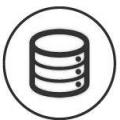Get an orientation to the basics of working with social science data in python. We'll start from the ground up, from the basics of naming variables, making decisions, and repeating operations to making informative (or at least fun) pictures on your screen.
Sign up for our weekly newsletter!
This is an archive of our past training offerings. We are looking to include workshops on topics not yet covered here. Is there something not currently on the list? Send us a proposal.
NOTE CHANGE OF TIME!
An intro to the basics that instructors often assume you know, but probably never had good instruction on! After this course, you should be able to more easily start learning to program (i.e., in R or python), or communicate better with your collaborators who are programming.
This very basic STATA workshop will cover:
This orientation workshop is designed to familiarize researchers with the D-Lab and the range of social science methods and software it supports through training and consultation.
This 2-part workshop will cover theory and techniques for maximizing the effectiveness of figures used for visualizing information. Rather than teaching any particular visualization software, this course will teach students about the "nuts and bolts" of effective data visualization. Dr.
This workshop will cover how to create, customize, and run a web scraper using python and scrapy. We will learn how to locate and extract data from HTML web pages using the Document Object Model. Finally, we will learn how to visualize the scraped urban data spatially with QGIS.
Using Grasshopper and Finches, a plugin for Grasshopper, we will experiment with importing GIS shp files into Grasshopper for further manipulation. We will import and manipulate shp files, create design proposals based on local conditions, and analyze data by overlaying datasets in 3D and 4D.
In this workshop we will learn about the basic concepts involved in georeferencing and get some hands-on experience with the process in QGIS, a free, open-source GIS tool. Georeferencing involves “spatializing” scanned maps or aerial imagery so that they can be used in a GIS. We will cover the basics of topics such as projections, coordinate systems, and the theory behind georeferencing.
This workshop will provide an introduction to the myriad of education data sources available for analysis. Discussion will include national and international data that are both public- and restricted-use.
In this workshop, we will use grasshopper, a graphical scripting interface for Rhino, as an engine to parse and related diverse data sets with each other, and create a wide range of data visualizations. Emphasis will be placed on the interdisciplinary applications for data visualization.
In this intensive workshop we will introduce the general workflow in grasshopper, a graphical scripting interface for Rhino. We will introduce the general commands and data-types, list and data management in Grasshopper, and an overview of computational geometry.
This is an overview presentation of using web scraping for urban data. How does web scraping work and what are the issues surrounding it? I will present on some of my prior work creating, customizing, and running a scraper. Finally, I will demonstrate how to visualize the scraped data. This is a presentation talk of web scraping and does not require attendees to bring a computer.
In this presentation, we will introduce Grasshopper, a graphic algorithmic interface. Originally conceived as a tool for designers, due to its ease of learning and capability to handle data, its potential goes beyond the design domain. We will show usage examples that can be related to a number of fields, and stress an interdisciplinary approach to data analysis and data visualiztion.
The goal of this lab is to understand basic concepts and functions of Geographic Information Systems (GIS) and produce geo-coded maps (displaying data) using ArcGIS. We will go over the very basics of spatial data and coordinate systems used in GIS, and then create thematic maps with demographic data representing the Bay Area from the US Census Bureau.
Dedoose is a cross-platform application for analyzing text, video, and spreadsheet data for qualitative and mixed methods research. D-Lab is sponsoring this webinar so that campus users can get experience with one of the newer software offerings in this domain.
This introductory workshop will introduce attendees to the reason for using a qualitative data analysis package for the coding and analysis process. We will begin by discussing the distinction between coding and analysis, the benefits of using a QDA package, and then view a brief demonstration of a specific program.
This very basic STATA workshop will cover:
- Opening a Stata file in stata.
- Using the menu bar and a do file.
- Using a help file.
- Generating or recoding new variables from old variables.
- Labeling variables, values, and missing data.
- Summarizing a variable (mean, median, standard deviation).
- Making a cross tabulation.
This training is meant for those tasked with administering a Wordpress site but are new to Wordpress (or want to level up their skills.) We will be going over topics such as backwards engineering, Wordpress content artchitecutre (posts, pages, tags, categories, media), free and premium themes, site building elements (widgets, menus, shortcodes), plugins and special features, and migrating your
This 2-hour workshop introduces the basics of data analysis in R, a powerful and free open-source programming environment. You will learn the core properties of the R programming language through step-by-step examples and scaffolded exercises with data provided by the instructor.
This workshop will focus on becoming familiar with searching and downloading the data published by the US Census Bureau. This will include understanding the data format, Census region mapping, the different surveys used in the US Census, and statistical concept of sampling error in the American Community Survey.







